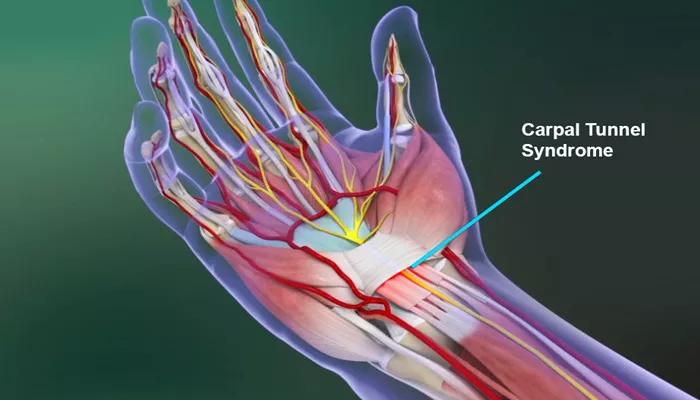Carpal Tunnel Syndrome (CTS) is a common condition affecting the hand and wrist, characterized by pain, numbness, and weakness due to compression of the median nerve. Recent studies suggest a significant association between CTS and heart failure, particularly among older adults. This article explores the potential links between these two conditions, the underlying mechanisms, and implications for patient care.
What Is Carpal Tunnel Syndrome?
CTS occurs when the median nerve is compressed as it passes through the carpal tunnel in the wrist. This compression can lead to various symptoms, including:
Pain: Often felt in the wrist and hand.
Numbness: Typically affects the thumb, index, middle finger, and part of the ring finger.
Weakness: Difficulty in gripping objects or performing tasks that require fine motor skills.
The prevalence of CTS is estimated to be between 3% and 6% of adults, making it a common ailment.
Causes of Carpal Tunnel Syndrome
Several factors contribute to the development of CTS:
Repetitive Hand Movements: Activities that involve prolonged wrist flexion or repetitive motions can increase pressure on the median nerve.
Health Conditions: Conditions such as diabetes, obesity, and thyroid disorders can predispose individuals to CTS.
Age and Gender: Women are more likely than men to develop CTS, particularly during pregnancy or menopause.
SEE ALSO: Why Are Nsaids Contraindicated in Heart Failure?
The Link Between Carpal Tunnel Syndrome And Heart Failure
Recent research has indicated that individuals with CTS may face an increased risk of developing heart failure. A notable study involving over 164,000 participants found that older adults with CTS had nearly a 50% higher risk of heart failure compared to those without the condition12. Specifically, within ten years, 8.4% of patients with CTS were diagnosed with heart failure versus 6.2% of those without CTS.
Potential Mechanisms Behind the Association
While the exact mechanisms linking CTS and heart failure remain unclear, several hypotheses have been proposed:
Amyloidosis: One theory suggests that both conditions may be related through amyloidosis—a rare disease where abnormal protein deposits (amyloid) accumulate in organs. This condition can lead to cardiac amyloidosis (ATTR-CM), which affects heart function and may present with symptoms similar to CTS years before heart issues arise.
Research indicates that patients with amyloidosis may experience CTS symptoms up to 15 years before developing significant cardiac impairment.
Inflammation: Both CTS and heart failure can be influenced by inflammatory processes. Chronic inflammation may contribute to nerve compression in CTS while simultaneously affecting cardiac health.
Shared Risk Factors: Conditions such as diabetes and obesity are risk factors for both CTS and heart failure. Their presence may increase susceptibility to both conditions independently.
Age as A Factor
The association between CTS and heart failure appears to be particularly pronounced in older adults. In studies, individuals aged 61-70 years or older than 70 years exhibited significantly higher risks for developing heart failure when diagnosed with CTS24. This suggests that age-related physiological changes may exacerbate the risks associated with both conditions.
Clinical Implications
Given this association, healthcare providers should consider several implications for patient care:
Screening for Heart Failure Symptoms
Healthcare professionals treating patients with CTS should be vigilant about potential heart failure symptoms. These may include:
- Shortness of breath
- Fatigue
- Swelling in the legs or abdomen
Early identification of these symptoms can facilitate timely intervention and management.
Research Recommendations
Further studies are needed to clarify the relationship between CTS and heart failure. Key areas for future research include:
Investigating whether routine cardiac screening should be implemented for patients diagnosed with CTS.
Exploring potential therapeutic interventions that could address both conditions simultaneously.
Conclusion
The association between carpal tunnel syndrome and heart failure presents an intriguing area for further exploration in cardiovascular health. While current research indicates a significant link—especially among older adults—more studies are needed to understand the underlying mechanisms fully. By recognizing this association, healthcare providers can improve patient outcomes through early detection and management strategies tailored for individuals with carpal tunnel syndrome.
In summary, while carpal tunnel syndrome primarily affects hand function, its implications extend beyond mere discomfort.
Understanding its potential role as an early indicator of heart failure could pave the way for better preventative care strategies in at-risk populations.
Related topics:


